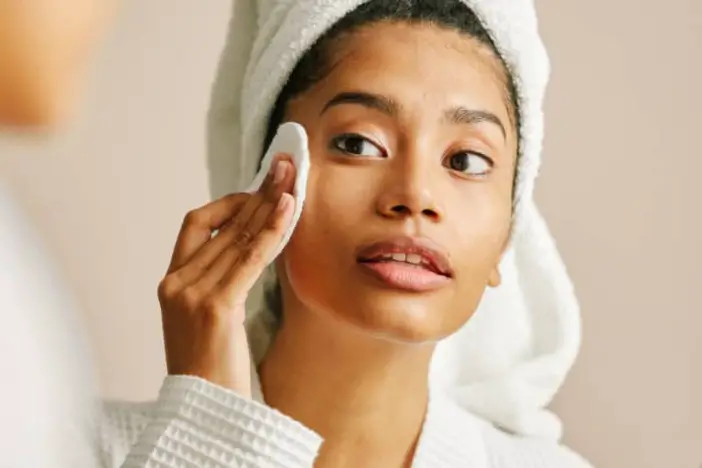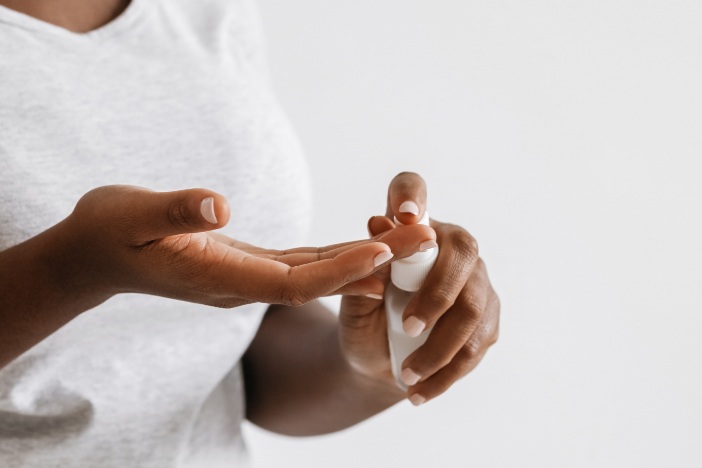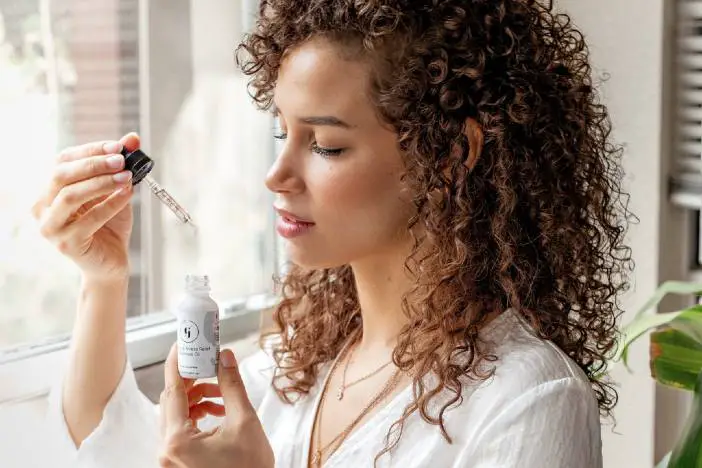Dark skin tones are lovely, but not all products are meant for it. Is this a fact? Some would argue yes, others no. And one of the most important ingredients in skincare is being put under this scrutiny. Yes, I am asking if retinol is beneficial to dark skin tones.
African American skin is complex, which is why it is unique. You don’t have one shade of dark skin. The ranges go from light to medium to dark and deep dark. And just like any other skin tone, there are worries and treatment.
One of the Holy Grail treatments is retinol. However, there are talks of if it serves the purpose for dark skin tones too.
The vitamin A derivative is touted as a wonder ingredient of skincare, but there are myths that you might come across that say the component is to be avoided if you have dark skin.
If you have read about the good and bad of retinol and you are not sure if dark skins can use retinol, I would be easing your mind to help you as you make your decision.
Is Retinol Good for Dark Skin?

In simple words, yes, retinol is good for dark skin.
However, varying opinions are backing this answer. For instance, double board-certified dermatologist and blogger Dr. Wendy E. Roberts says retinol works the same way for dark skins as it does for lighter skins.
Retinol is an active component used to renew skin cells, boost collagen level, and clear dark spots. It works equally on all skin tones.
However, not all retinol is meant for dark skin, she points out. Some are more potent than others and could damage the skin if not used correctly.
Dermatologist Laura Scott agrees with this, highlighting that some forms of the vitamin A derivative might have negative effects on the skin.
According to her, “dark skins are more reactive to trauma or damage, including irritation caused by high-intensity skincare ingredients like retinol.”
That means dark skins are more likely to have a harsher reaction to retinol than other skin tones. “The reaction could lead to hyperpigmentation, which could last from two to four months before clearing up,” she says.
When you experience such a reaction, it is best to discontinue the products and use sunscreen and moisturizers to reduce inflammation.
With the possible effects dark skin might face from using the wrong type of retinol, it should not disturb or weaken our resolve to use the products, the Dr. advises.
“Retinol is a great way to treat dark skin tones of unevenness, glow up the skin, and reduce hyperpigmentation,” Dr. Scott says. This is why retinol is important to dark skin and other skin tones in general.
How to Safely Use Retinol on Dark Skin
If dark skins are to use retinol, patch testing is the first step to protecting your skin. Also, slowly integrating the component into your skincare routine is the best way to protect your skin.
Furthermore, starting with a product with a weak concentration will help the skin slowly adjust to retinol.
When you want to use retinol, apply a moisturizer on your face before using it. The moisturizer serves as a barrier between the skin and the component. And you can pair it with other active ingredients like hyaluronic acid, vitamin C, and niacinamide.
Then wear sunscreen always. Retinol is photosensitive and could dry the skin faster under the sun.
However, wearing sunscreen would protect the skin from photosensitivity. Also, you would be proactive in case the retinol might cause hyperpigmentation on the skin.
Benefits of Retinol for Dark Skin

1. Reduces wrinkles and fine lines
Dark skin tones can benefit from retinol when it comes to reducing wrinkles and fine lines. The component helps to thicken the skin surface from underneath, which improves collagen production in the inner layer of the skin.
Once collagen is stimulated, skin cell turnover is increased. And this makes the skin look younger and smoother. Therefore, as skin cell turnover improves and new skin is created, wrinkles and fine lines reduce.
2. Evens skin tone
Also, retinol helps to even skin tone, reduces signs of hyperpigmentation, and leaves glowing healthier skin.
Dark skins are known to pigment more than other tones due to melanin production. This means we experience pigmentation more than others.
Retinol would help to reduce the discoloration and appearance of brown spots. Also, it helps to keep the skin glowing due to the new skin being made.
3. Enhances collagen production
Retinol is said to go deep into the dermal layer of the skin, enhancing collagen production there. When collagen is enhanced, it helps our skin stay supple, firm, and glowing.
Regeneration also becomes easy when collagen is enhanced and skin cell turnover is improved. With retinol enhancing collagen production, aging effects are also reduced.
4. Blurs skin spots, scars, and blemishes
Aging spots, sun spots, blemishes, and other discoloration are treated by retinol. Also, retinol clears acne scars. Due to retinol enhancing skin cell turnover, new cells can surface, helping to fade old scars and spots.
Furthermore, retinol has antioxidants that heal quickly. You can help to reduce hyperpigmentation and even sunspots on the skin. The retinol products you use peel old scars skin cells over time, leaving new fresh skin.
5. Reduces pore size
Retinol benefits dark skin tones because it can act as an exfoliant. The vitamin A derivative helps to clear old skin cells that are hiding in the pores.
Retinol also helps with the excess sebum in the pores. It reduces it and helps to clear bacteria. All of these are what make the skin pores wider. When they are controlled, the pores shrink.
Frequently Asked Questions

Who can use retinol?
Retinol is an active anti-aging ingredient used in controlling aging effects and improving the skin’s natural glow.
Therefore, anyone who is affected with aging reactions like wrinkles, fine lines, crow’s feet, and sunspots can use retinol.
People who suffer from severe acne and acne scars can be prescribed OTC retinol to treat the skin of the conditions.
Also, if you have discoloration or hyperpigmentation, you can use retinol to even out your dark skin complexion.
Does retinol have side effects on dark skin?
Yes, it does. Retinol is highly concentrated, so it might cause side effects.
Sensitive skins are to be careful when using retinol. It is advised you use retinol in small doses of concentration. Also, any retinol product must not be more than 1% concentration.
Besides this, you should patch test before using retinol on your skin. As I mentioned earlier, dark skins are prone to more damages when they react to harsh products. So patch testing would save you and your skin.
How can I use retinol for dark skin?
Retinol can be used in various forms. Retinol can be an ingredient in your moisturizer. It is usually one of the active products in moisturizers today.
However, retinol is more concentrated in serums. Serums are highly concentrated beauty products applied on the skin to provide fast-acting solutions. Retinol is potent and effective in serums.
Also, retinol can be added to cleansers, face toners, or used pure( should be mixed with a moisturizer).
You can use these retinol forms in your morning or nighttime skincare routine. It is safe to be used every day.
Can I use retinol as a long-term product for my dark skin?
Yes, you can. Dark skin can use retinol as a long-term skin treatment component.
Retinol is safe to be used by anyone. In fact, you have to maintain your retinol products in your routine to continue to enjoy the benefits highlighted above.
However, to use safely, remember to keep your skin protected with sunscreen because retinol is photosensitive. Also, avoid using many products with harsh or abrasive ingredients at the same time with retinol.
Some products cause reactions when combined with retinol. For instance, salicylic acid might be too abrasive when combined with retinol.
Avoid combining retinol with harsh ingredients to protect your skin from reactions.
When will the effects of retinol start showing on dark skin?
It takes four to six weeks before you start seeing changes in your skin when you use retinol.
You have to be patient when using the skincare product. Consistency with any retinol product would also help the process of achieving your skincare result.

Conclusion
Dark skins are prone to skin damage by harsh ingredients. It is commonplace to be scared about the side effects of retinol and if it could harm your dark skin. It is a highly concentrated ingredient, after all.
Retinol is safe when used correctly. Retinol is beneficial to all skin tones. How you use it is what determines if your skin will achieve the desired benefits or not. So always remember to use it correctly.
One of such safe retinol to use on your dark skin is CeraVe Retinol Serum for Post-Acne Marks and Skin Texture.
The retinol product helps to reduce the size of pores and acne scars. It also helps to refine the skin’s texture, keeping it smooth. It is a perfect product to keep your skin glowing.
Africana Fashion provides skincare articles to suit your healthy lifestyle.







